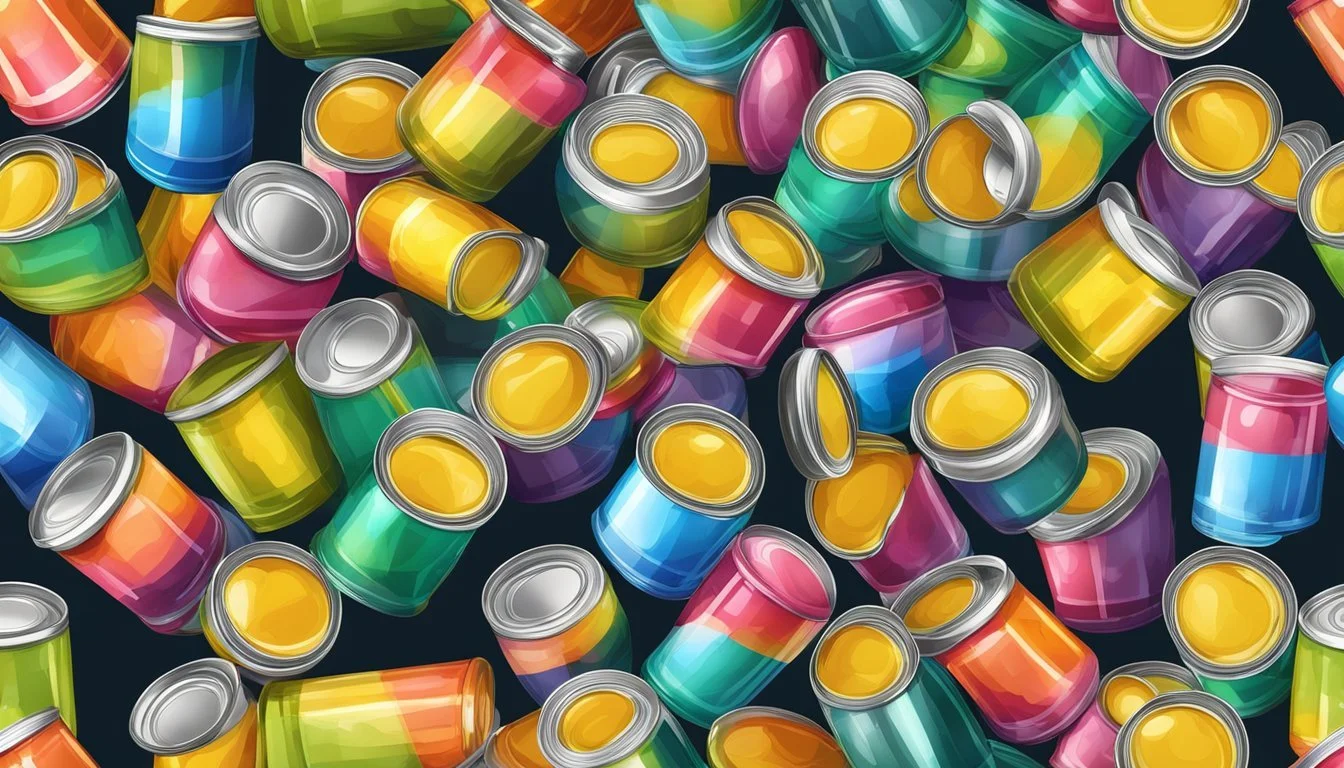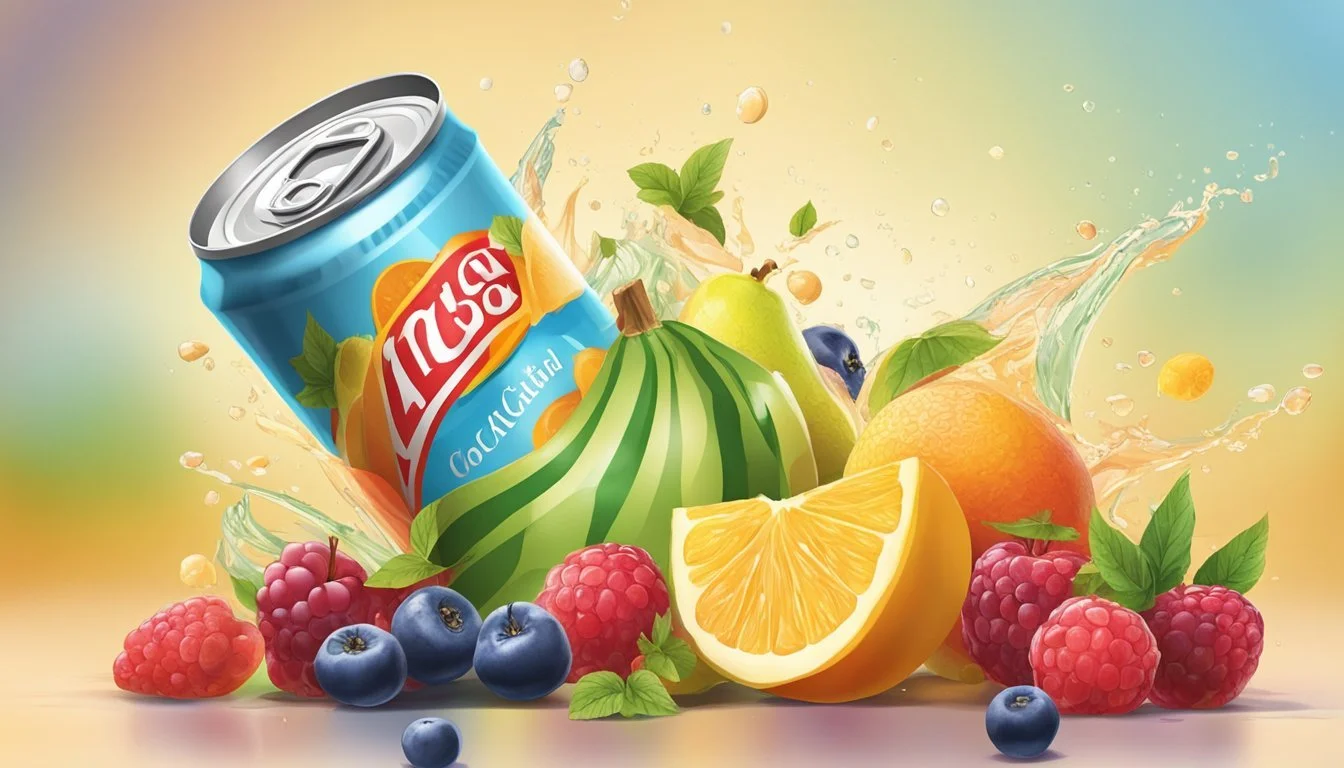Does Canned Fruit Cocktail Expire?
Shelf Life and Storage Tips
Canned fruit cocktail offers a convenient way to enjoy mixed fruits year-round. Unopened, properly stored cans of fruit cocktail generally have a shelf life of 18 to 24 months, though they often remain safe to consume well beyond this period if the can is undamaged. The canning process involves sealing and sterilizing the fruit to prevent spoilage from bacteria and microorganisms.
Once opened, the shelf life of canned fruit cocktail is significantly shorter. When refrigerated and stored in a covered glass or plastic container, it lasts about 5 to 7 days. Quality and taste may degrade over time, so it's advisable to consume it sooner rather than later.
Storage conditions play a crucial role in maintaining the quality and safety of canned fruit cocktail. Keep the cans in a cool, dry place to maximize their shelf life. If there’s any sign of damage to the can, it's better to err on the side of caution and discard it.
Understanding Canned Fruit Cocktails
Canned fruit cocktails are popular for their convenience and long shelf life. Key factors include the ingredients used and the canning process, which ensure the product remains safe and edible for extended periods.
Components and Ingredients
A traditional fruit cocktail typically contains a mix of fruits such as pears, peaches, grapes, pineapple, and cherries. These ingredients are often diced and combined to offer a balance of flavors and textures. Many canned fruit cocktails contain added sugar or syrup to enhance sweetness and preserve the fruit.
Preservatives are sometimes included to further extend shelf life. It's important to check the nutritional value and be aware of any added ingredients that can affect dietary needs, such as high sugar content.
The Canning Process
The canning process involves placing the mixed fruit in an airtight container and sealing it to prevent contaminants. The sealed cans are then heated to a specific temperature to sterilize the contents, killing any bacteria and microorganisms that could cause spoilage.
This method ensures that the canned fruit cocktail remains shelf-stable for an extended period, typically lasting anywhere from 18 to 24 months or even longer. Proper storage, like keeping cans in a cool, dry place, helps maintain the quality and nutritional value of the fruit.
Shelf Life Determinants
The shelf life of canned fruit cocktail depends on numerous variables such as storage conditions, the presence of preservatives, and the accuracy of the expiration labels.
Labels and Expiration
Labels often indicate terms like "best by," "best before," or "best if used by." These dates are not safety dates but serve as guidelines for peak quality. The safety date is more critical, indicating when the product is expected to remain safe under ideal conditions.
An unopened can typically remains safe for 2 to 5 years. Exceeding these dates doesn't necessarily mean the product is unsafe, but its quality might degrade.
Storage Impact on Shelf Life
Storage conditions heavily impact the shelf life of canned fruit cocktail. Storing cans in a cool, dry place prolongs their shelf life. Avoiding exposure to direct sunlight, heat sources, and high humidity is crucial.
Once opened, the fruit cocktail should be transferred to an airtight container and refrigerated. In the refrigerator, it lasts up to 7 days. Freezing can extend its longevity further, maintaining the best quality for around 2 months.
Factors Affecting Shelf Life
Various factors affect the shelf life of canned fruit cocktail, such as temperature and light exposure. Cans stored at consistent, cool temperatures are likely to maintain quality longer.
Heat exposure accelerates degradation, leading to nutrient loss and potential spoilage. Humidity can cause rust or corrosion in cans, compromising their integrity. Ensuring the can is undamaged also plays a critical role in shelf life.
The Impact of Preservatives
Preservatives in canned fruit cocktail help to inhibit oxidation and microbial growth, thus extending shelf life. Ingredients like sugar syrups or ascorbic acid are commonly used. These substances not only preserve the fruit's color and taste but also maintain its nutrients.
Despite preservatives, proper storage remains essential. Even with these chemical aids, the fruit will not stay fresh indefinitely without adequate care.
Identifying Signs of Spoilage
Identifying spoilage in canned fruit cocktail involves looking for changes in color and texture, noticing off odors, and checking for any physical damage to the can. Recognizing these signs can help determine the safety and quality of the product.
Changes in Color and Texture
Spoiled canned fruit cocktail may undergo noticeable alterations in color and texture. Fresh canned fruit cocktail typically retains a vibrant appearance with distinct hues of the individual fruits.
If the fruit cocktail appears discolored or has turned an unusual shade, this may indicate spoilage.
Texture changes are another red flag. The fruits should hold their shape and feel firm to the touch. If the fruit pieces become mushy, slimy, or excessively soft, it suggests spoilage. Watch for any unusual cloudiness in the syrup, which can also signal degradation.
The Smell of Spoilage
An off odor is a primary indicator of spoilage in canned fruit cocktail. Upon opening the can, there should be a fresh, fruity aroma.
If the smell is sour, rancid, or generally unpleasant, this implies that the fruit cocktail is no longer safe to consume.
Take note of any metallic or chemical-like smells as well. These can also be warning signs of spoilage. It's always better to discard the product if the odor is suspect rather than risk potential health issues.
Physical Can Damage
Any physical damage to the can itself can contribute to spoilage or serve as a sign that spoilage has occurred. Examine the can for dents, rust, or bulging.
A dented can might compromise the seal, allowing bacteria to enter and spoil the contents. Rust can weaken the can's structure, making it more prone to leaks or breaks.
Bulging is particularly concerning as it often indicates gas production from bacterial activity. Leaking cans or those with broken seals should be discarded immediately as they are no longer safe. Always inspect the can thoroughly before using its contents to ensure the integrity and safety of the food inside.
Safety and Consumption
Ensuring the safety of consuming canned fruit cocktail involves understanding expiration dates and recognizing potential health risks. Factors such as storage conditions and the state of the can play vital roles in determining whether the product remains safe to eat.
When Is It Safe to Eat
Unopened canned fruit cocktail typically remains safe to eat past its "best before" date, provided the can is undamaged and stored in a cool, dry place. Peak quality lasts up to 2 to 5 years, depending on the manufacturer and storage conditions. The expiration date is when the manufacturer no longer guarantees full potency and taste, but the food might still be safe to eat.
Once opened, canned fruit cocktail should be stored in the refrigerator and consumed within 5-7 days. Proper storage in airtight containers can extend shelf life and minimize the risk of spoilage. Always inspect the contents for signs of spoilage, such as off odors, unusual textures, or visible mold.
Risks of Consuming Expired Products
Consuming spoiled or expired canned fruit cocktail can pose health risks. The presence of harmful bacteria can lead to food poisoning and other digestive system issues. Common symptoms include nausea, vomiting, stomach cramps, and diarrhea. Ensuring that the can is undamaged and free from bulging or rust is crucial, as these signs indicate potential bacterial contamination.
Even if the fruit looks and smells fine, consuming it past the peak quality can result in reduced nutritional value and flavor. Always discard any canned food that shows signs of spoilage to avoid health problems. Proper handling and awareness of expiration dates are key to maintaining safety in canned food consumption.
Optimal Storage Recommendations
Proper storage of canned fruit cocktail ensures it remains safe and retains its quality and nutritional value. The following recommendations cover ideal storage conditions and methods to extend the shelf life of canned fruit cocktail.
Ideal Temperature and Environment
Storing unopened canned fruit cocktail at room temperature is suitable. However, for best results, keep cans in a cool, dry place away from direct sunlight. Temperatures between 50°F and 70°F (10°C and 21°C) help maintain the quality of the fruit.
Avoid placing cans in damp areas to prevent rusting, which can compromise the can's integrity. A pantry or a cupboard in a kitchen, far from heat sources like ovens or stoves, is ideal.
Extending Shelf Life
Once opened, transfer any unused fruit cocktail to airtight containers before refrigerating. Stored correctly, the fruit cocktail remains safe in the fridge for 5-7 days.
For extended preservation, freezing is an option. Place the fruit cocktail into heavy-duty freezer bags or covered airtight containers.
Properly frozen fruit cocktail can maintain optimal quality for about 2 months. Though it remains safe beyond this period, the texture and flavor may deteriorate. Using cold water to thaw the fruit cocktail quickly is effective, maintaining its quality.
Usage Ideas Beyond Expiration
Expired canned fruit cocktail can still offer convenience and versatility in the kitchen. Properly stored, it can be creatively repurposed into delicious dishes and drinks.
Creating Fruit Salads and Desserts
Even if the fruit has slightly degraded, it can be used to create refreshing fruit salads. Draining the syrup and combining the fruit with fresh ingredients like mint and honey can bring new life to the expired contents.
Including the cocktail in baked goods such as cakes or muffins adds a burst of flavor. Mixing the fruit into gelatin or pudding can create classic and easy-to-make desserts that still taste delicious, even if the fruit has seen better days.
Incorporation into Mixed Drinks
Canned fruit cocktail can be used in various mixed drinks and cocktails. The fruits and their syrup can serve as a base for smoothies or mocktails, offering a unique twist.
Mixing the fruit with a spirit like whiskey or blending it into pre-mixed canned cocktails can create a delightful drink. Adding it to wine or hard seltzer can also provide a novel flavor profile, transforming expired fruit into a key ingredient for entertaining beverages.
Canned Fruit Cocktail Alternatives
When considering alternatives to canned fruit cocktail, it's important to explore the benefits of both fresh and frozen fruit. Additionally, there are a variety of both non-alcoholic and alcoholic variants that can be enjoyed.
Comparing Fresh and Frozen Options
Fresh fruit provides the highest level of nutrients, vitamins, and minerals. Fruits like apples, grapes, and oranges offer vibrant flavors and appealing appearances. Fresh options also avoid concerns relating to oxidation caused by exposure to oxygen.
Frozen fruit retains most of its nutrients due to the rapid freezing process. Varieties such as berries, mangoes, and peaches are popular. They are convenient, have a long shelf life, and usually lack added sugars and preservatives.
Comparison Table:
Type Nutrient Retention Shelf Life Convenience Fresh High Low (days) Low Frozen High Moderate High
Non-Alcoholic and Alcoholic Variants
For those who enjoy drinks, canned fruit cocktail alternatives such as non-alcoholic and alcoholic variants are worth considering. Non-alcoholic options include fruit juices and sparkling waters infused with fruit flavors.
Alcoholic variants span a broad spectrum. Beer, wine, and spirits can be combined with fruit flavors to create refreshing coolers. Canned cocktails containing fruit and spirits like rum or vodka are a popular choice and offer convenience.
Popular Alcoholic Options:
Canned Beer with Fruit Infusions: Light and refreshing.
Wine Spritzers: Combine wine with fruit juice.
Canned Spirits with Fruit: Convenient and flavorful.
Choosing the right alternative depends on personal preferences, dietary needs, and the occasion. Each offers unique benefits and taste experiences.





